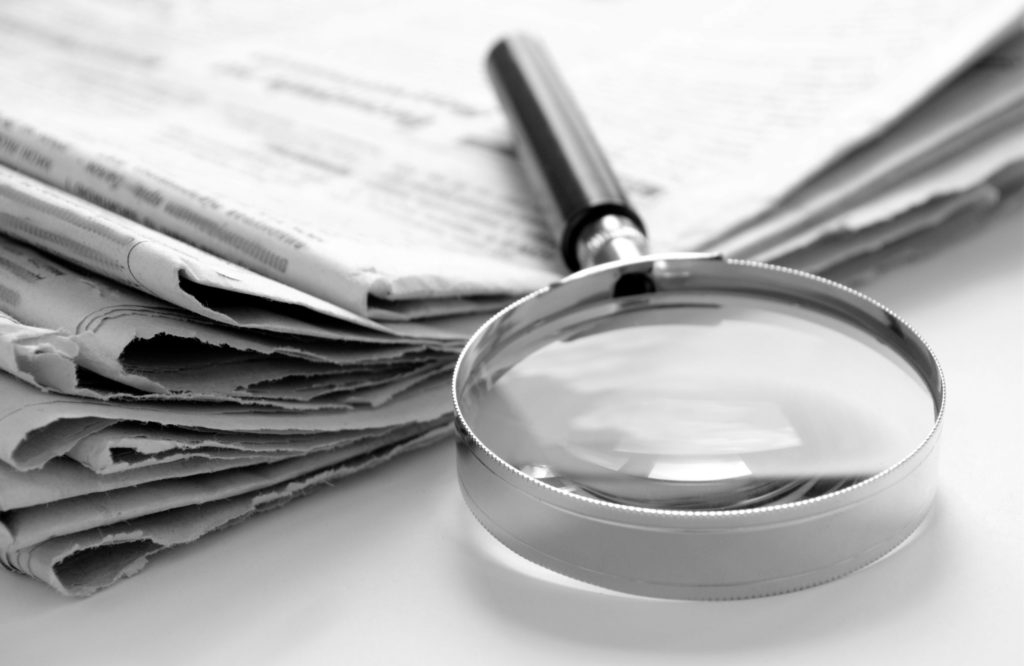Australia/Israel Review
Media Microscope: MEAA Too
Dec 21, 2023 | Allon Lee

In May 2021, as a limited conflict played out between Hamas and Israel, pro-Palestinian activists in Australia convinced hundreds of media professionals to sign an extraordinary letter called “dobetteronpalestine”.
The letter called on Australia’s media to avoid “both siderism that equates the victims of a military occupation with its instigators,” and instead “make space for Palestinian perspectives, prioritising the voices of those most affected by the violence.” The terms of the letter were largely seen as antithetical to the fundamental principles of journalism.
Fast forward to the current Hamas-Israel war and the National Media Section of the Media, Entertainment & Arts Alliance (MEAA) endorsed a similarly worded letter, sparking major public debate.
On Nov. 24, News Corp reported that editors of the Age and Sydney Morning Herald had warned that staff who signed the letter would be “unable to participate in any reporting or production related to the war.” Indeed, CBD columnist and signatory Noel Towell’s name subsequently disappeared from that column when items involving Jews or Israel appeared in it.
The Australian Financial Review reported (Nov. 26) that ABC News Director Justin Stevens emailed staff advising, “You should not sign any petition that may bring into question your impartiality or that of the ABC’s coverage.”
Prominent journalists expressed serious concerns about the MEAA letter.
Writing in the Australian (Nov. 27), Julie Szego, who was sacked as an Age columnist in June for “speaking out about activist journalists at the paper,” scoffed at a demand in the letter that “the government of Israel and the terror group Hamas” be regarded with the same “professional scepticism”.
“We can only presume,” she said, that the letter’s signatories believe Hamas “fiercely respects the Fourth Estate.”
In the same edition, former ABC journalist and board member Ramona Koval disclosed details of an extraordinary meeting of ABC executives with 200 staff journalists, many of whom wanted to “freely use the terms ‘genocide’, ‘occupation’ and ‘ethnic cleansing’ in their own reporting” on Israel.
Koval said they “were rightly told no. But when some, with family or political allegiances, claimed they were upset by the reporting of the war, another executive agreed to go away and think about what might be done. What are they running, a kindergarten? They should have said feelings have nothing to do with reporting.”
Australian columnist Janet Albrechtsen (Nov. 29) pointed out the glaring contradiction of journalists saying their aim is “to deliver truth and full context” while simultaneously “pick[ing] a side”.
In the Australian Financial Review (Nov. 17), former Age editor Michael Gawenda noted that the signatories to a similarly worded letter on the Overland journal website, did “not refer to themselves as journalists but media workers… Perhaps they believe the designation journalist is no longer meaningful. After all, being a journalist implies an adherence to certain values and ethical principles. Like fairness, like factual accuracy.”
In a later piece (Australian, Dec. 2), Gawenda said, “Many journalists no longer want to be journalists… they want to be activists, fighters for a good cause,” in this instance, “the cause of the oppressed Palestinian people, occupied for 75 years by a racist white supremacist state that is perpetrating a genocide in Gaza.”
The West Australian business reporter Neale Prior (Dec. 1), a member of the MEAA’s media national council, slammed his own union for “publicly endorsing a letter that… prescribes how journalists should cover unfolding events in the Palestinian territories and Israel, complete with justifications for the actions of Hamas as it spearheads a 75-year campaign to wipe out Israel. Under the guise of promoting ‘ethical reporting on Israel and Palestine’ journalists are urged to give ‘historical context’ to Hamas’ murder of 1200 people and kidnap of about 250 others.”
Australian columnist Gerard Henderson (Dec. 9) criticised ABC TV “7.30” chief political correspondent Laura Tingle’s soft interview with anti-Israel publisher Louise Adler to discuss a controversy over three Sydney Theatre Company actors who donned keffiyehs as a protest at the end of their opening night performance.
Henderson mocked Adler for claiming critics of Israel “are being silenced” even while appearing “on one of the taxpayer-funded public broadcaster’s leading current affairs programs.”
He also noted Tingle had an op-ed supporting the STC actors in the Financial Review two days before interviewing Adler, meaning “missing from 7.30… was any debate.”
Tags: Australia, Media/ Academia






